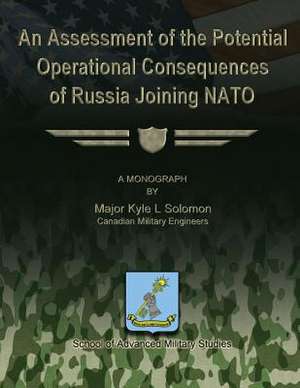An Assessment of the Potential Operational Consequences of Russia Joining NATO
Autor Major Kyle L. Solomon Contribuţii de School Of Advanced Military Studiesen Limba Engleză Paperback
Preț: 108.78 lei
Nou
Puncte Express: 163
Preț estimativ în valută:
20.81€ • 21.73$ • 17.19£
20.81€ • 21.73$ • 17.19£
Carte disponibilă
Livrare economică 26 martie-09 aprilie
Preluare comenzi: 021 569.72.76
Specificații
ISBN-13: 9781479195268
ISBN-10: 147919526X
Pagini: 66
Dimensiuni: 216 x 279 x 4 mm
Greutate: 0.18 kg
Editura: CreateSpace Independent Publishing Platform
ISBN-10: 147919526X
Pagini: 66
Dimensiuni: 216 x 279 x 4 mm
Greutate: 0.18 kg
Editura: CreateSpace Independent Publishing Platform
